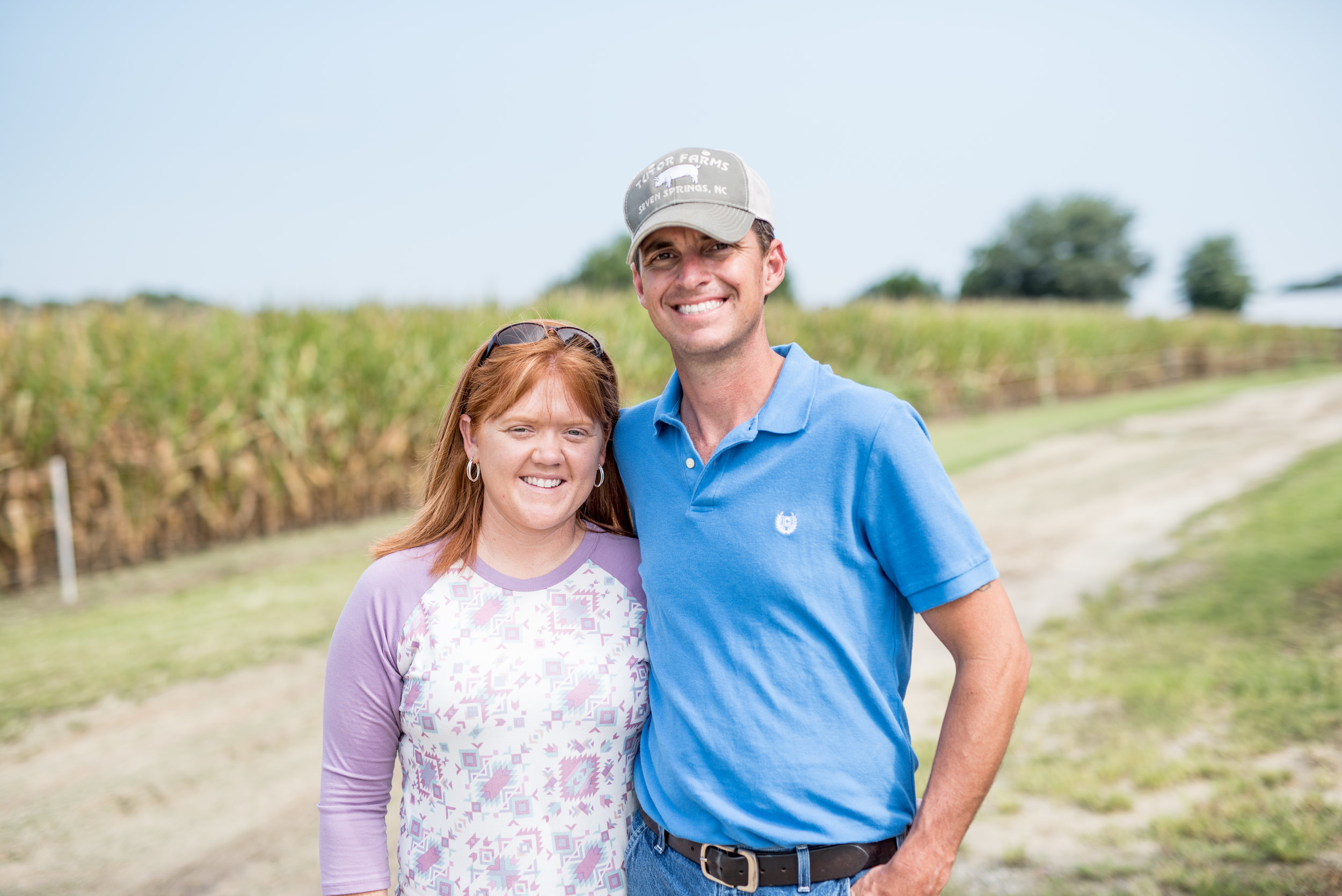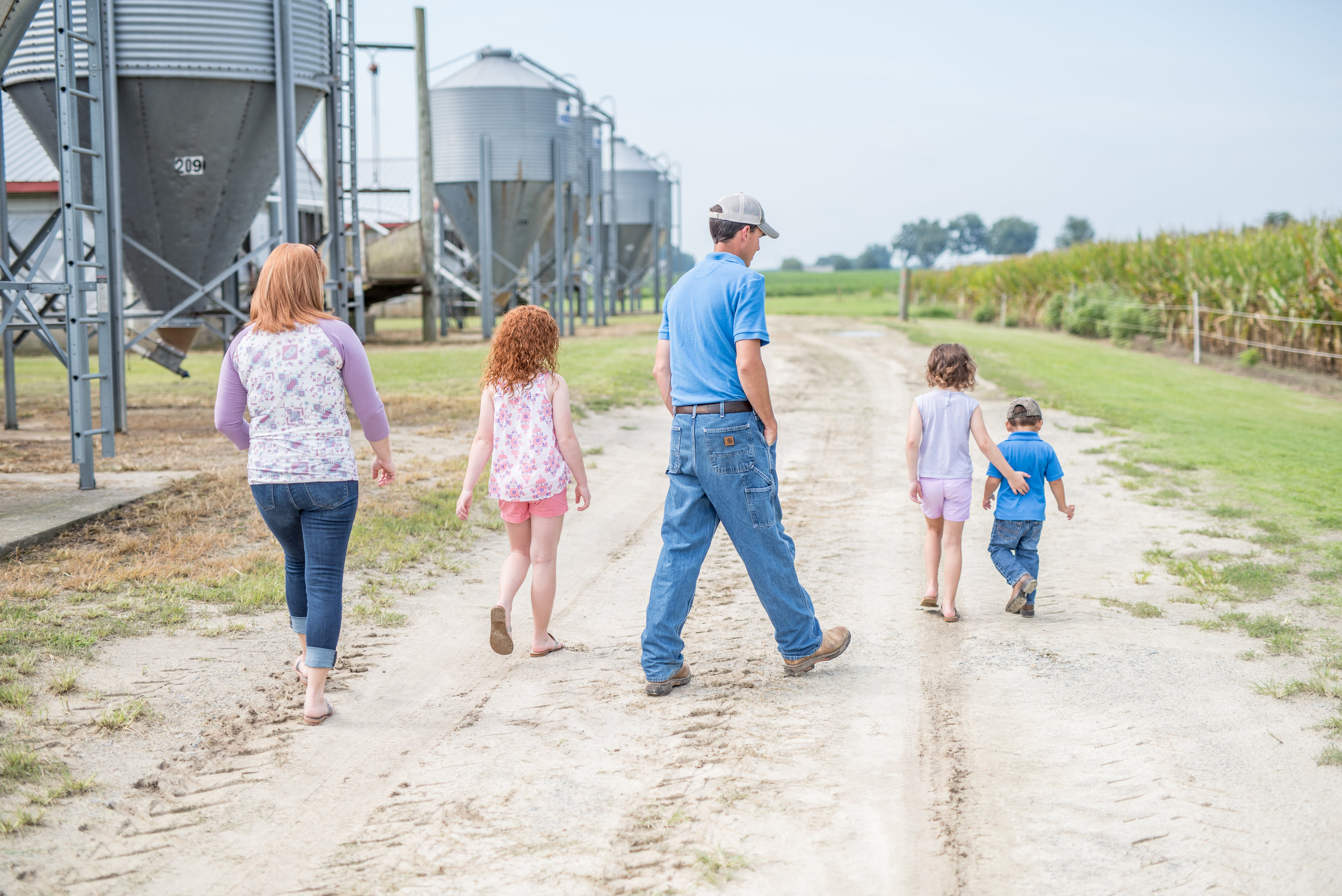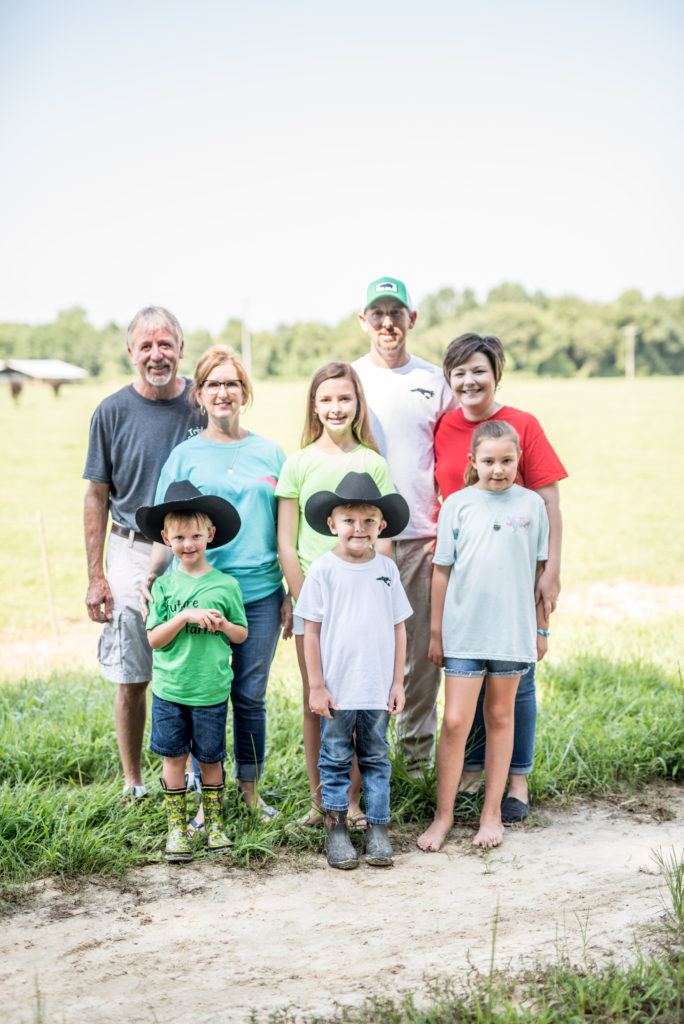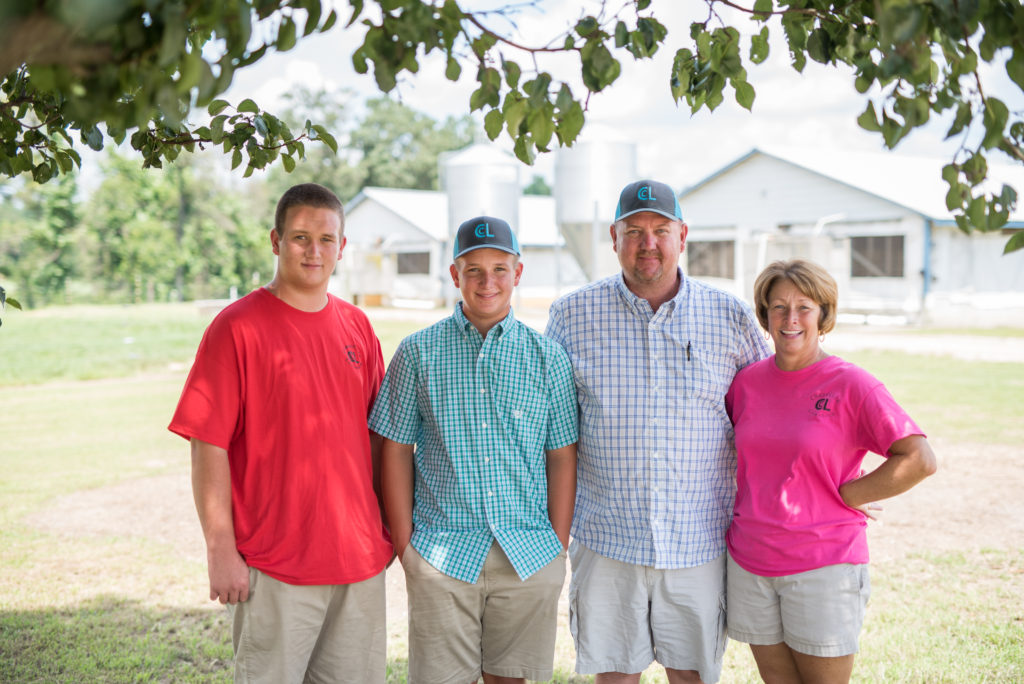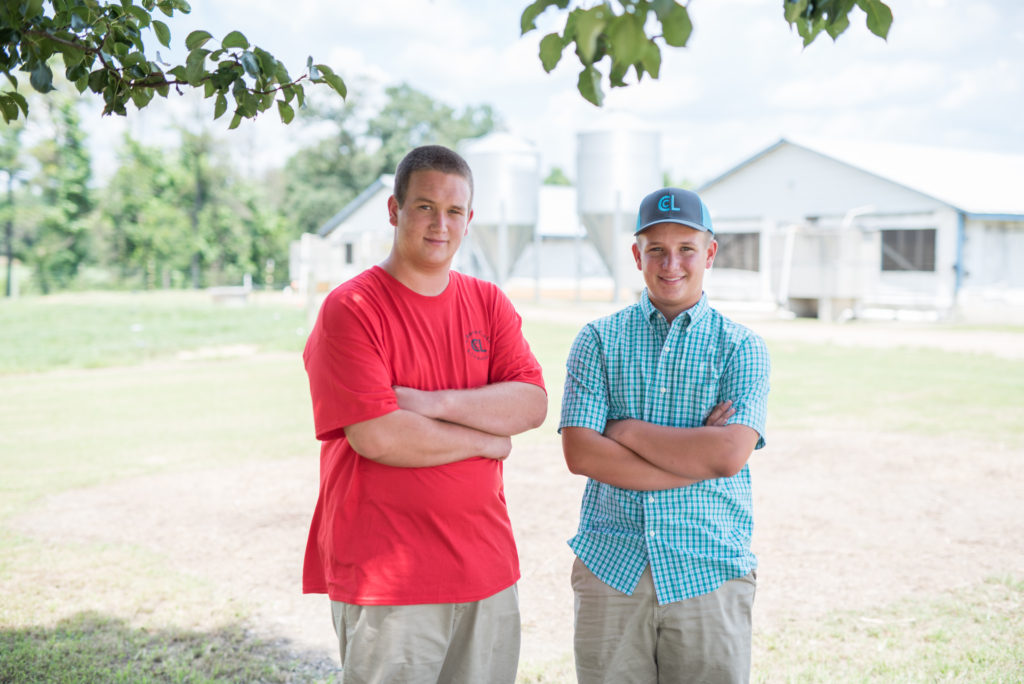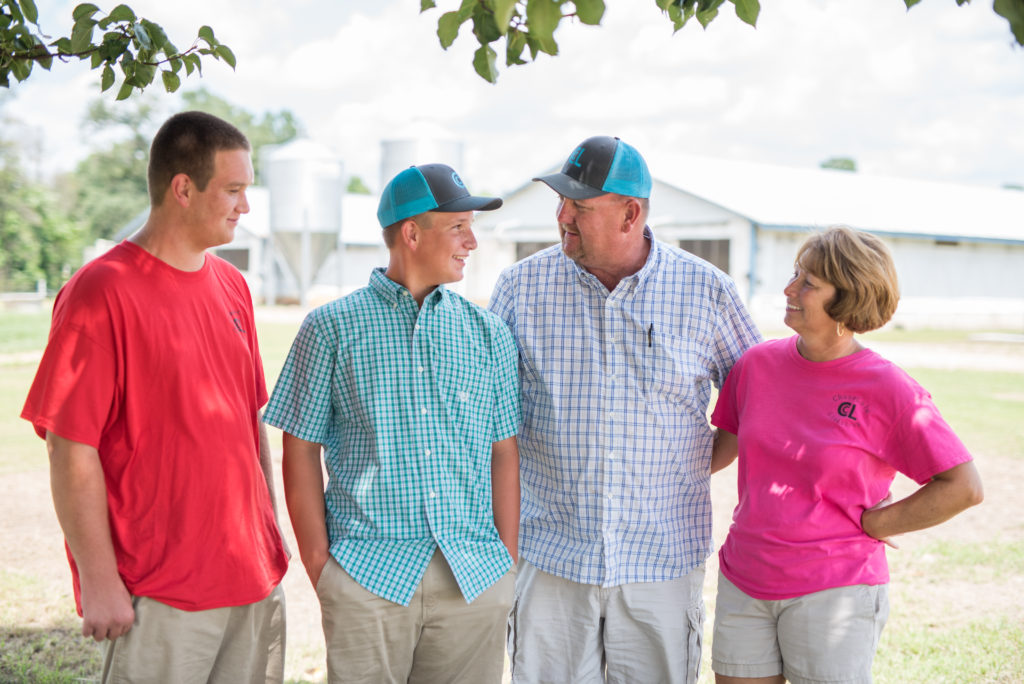The goal of Faces of NC Farm Families is to shine a light on the people behind the food, and to tell the stories of the folks who work hard on their farm. Through this project, you’ve already met several families across the state who farm, and it is time for another feature.
However, this feature is a little different than the others—the family are no longer pig farmers. We received a message from the family, to let us know that they had made the very hard decision to sell their farm. They knew we wanted to feature them in our series Faces of NC Farm Families (we had even already gone out to their farm to take pictures and video), but now, they didn’t own the farm.
After talking with them, we made the command decision to feature them anyway. You see, farming isn’t just a profession, it is a passion. Their passion has not gone away. They are still farmers at heart. Sometimes, though, finances, time, health…LIFE, prevents you from making your passion a profession. With their permission, we want to tell the story of a family who put their hearts into a pig farm, but ultimately decided to sell their farm for the benefit of their family. It is a story of farming, family, and hard decisions. This is the Tutor family story.
April and Kevin Tutor live in the rural town of Seven Springs in Eastern NC. They are parents to three kids—Bailey, Parker, and Shaun. They are also foster parents, opening up their hearts and home to other children. It is through this program that they were able to bring Shaun into their home permanently through adoption. They are involved in their community, home school, hold down careers, and love the rural life. Upon meeting the family, you’ll quickly learn they are genuine people who have a passion for agriculture and a deep love of family.
Kevin and April met on a blind date, and 9 months later were married. They have now been married for 13 years. In 2013, they made the decision to buy April’s dad’s hog farm before it went into foreclosure.
“Because we bought it under those circumstances, we had to pay much more than the value of the farm was worth. It doesn’t cash-flow,” said April.
For the Tutors, the dream of a farm meant taking on quite the financial burden. The farm wouldn’t cash-flow until 2028, and it would take an additional 12 years for the family to make back what they had put into the farm. Those reasons meant that the Kevin and April both had to work public jobs outside of the farm. Kevin worked weekends at Weyerhaeuser while April worked from home as a business analyst and part time doing field investigation.
“A lot of times she’ll fly out Monday night just to fly in on Thursday night in time for me to leave Friday morning. That can be a lot. That can be stressful. That’s probably the hardest part for me is we’re both having to work and juggle the farm and the kids,” said Kevin.
For the Tutors, though, it was important to carry on the land that April’s great grandfather had bought and worked so hard for. They also wanted their kids to have the experience of farm life.
The kids truly enjoyed the farm. Shaun liked to feed the pigs gummy bears as a treat and all of the kids liked to check pigs with their parents and run up and down the farm paths. As much fun as it was, though, the struggles didn’t go unnoticed.
Bailey described how much she loved going through the hogs with her daddy, but she also had some qualms with the farm.
“Some nights when daddy has to go through the hogs, he doesn’t get time to eat with us, so we go ahead and eat without him. Then he comes home, takes a shower, and has to go to sleep because he has to go to work the next day,” said Bailey.
Farming. It isn’t easy or picturesque. It’s hard and demanding. It takes a lot of time and money.
“I feel like sometimes people think that hog farmers make lots of money or farmers get big checks. We have to work for our farm. We really have to work for our farm because it doesn’t cash-flow,” said April.
April went on to talk about how they miss out on many things as a family because of the farm. Beach trips in the summer didn’t happen. If they did go on vacation, Kevin stayed home to watch the farm.
This past November, a friend of the family approached them with an offer for the farm. After much prayer, they decided to sell the hog farm, but keep most of the land surrounding it. Although, thankful they get to hold on to some of the family land, it has still been very difficult to sell the hog farm, something that has been in the family for generations. The decision came down to the current generation, though.
Because Kevin and April had to pay such a steep price for the farm in the beginning, they found themselves working long hours only to come home to work on the farm in their spare time.
“Our kids are growing so fast, and we feel like, even though we home school and are with them all the time, there was no quality time,” said April.
The kids were either with April while Kevin worked or vice versa. They were seldom all together as a family. That was mentally draining for the family on top of the financial burden that the farm was.
The decision to sell wasn’t easy. April put it best when she said, “I have never wanted something so bad and not wanted something so bad at the same time. Farming is hard.”
That it is April. That it is.
Today, the Tutors still live the rural life. They are still family farmers at heart. They still live near the pig farm. Family and farming are often intertwined, but sometimes, you have to make a decision between the two. The Tutor’s story is not every farmer’s story, but it is also not a rarity. Many farmers have to take off their farming hat for one reason or another. April’s hope was that perhaps their story would shed light on the fact that hog farming isn’t always a big pay day. Farmers aren’t always rich. Farming is hard.Thank you Tutor family for allowing us to tell your story.
Thank you for your passion for family and for farming.
Photos by: M. See Creative


